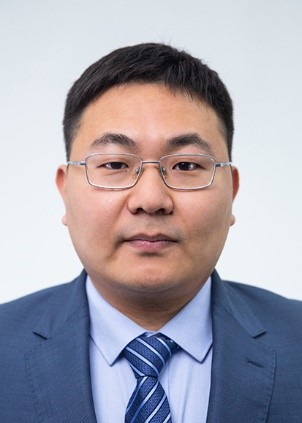
In this era of next wave of technological revolution and industrial transformation, the global automotive industry is evolving rapidly towards electrification, intelligence, and shared mobility. Its integrated development with smart transportation and smart cities is not only reshaping the future mobility value chain, but also transforming the automotive industry and smart cities. Smart Shared Mobility 3.0, characterized by 5G, AI and big data, is driving the industry’s transformation and upgrading and reshaping the future urban mobility ecosystems. As a competitive vantage, the Mobility 3.0 is also a focal point connecting intelligent connected vehicles and new energy vehicles (NEVs) with future urban transportation, next-generation information and communication infrastructure, and renewable energies.
Organized jointly by the China Society of Automotive Engineers (China SAE) and the China Intelligent Transportation Systems Association (ITS China), the second International Smart Shared Mobility Congress (SMC 2019) will take place in Huadu, Guangzhou, Nov. 13-15. The event, which has drawn extensive attention, aims to strengthen collaboration and exchanges between China and the world and accelerate the sustainable development of smart shared mobility.
Automotive Industries (AI) asks Jinshan Feng, Deputy Director of Industry Development Research Department, what kind of shared mobility technologies will be highlighted at this year’s SMC 2019?
Jinshan Feng:The theme of SMC 2019 is Advancing towards the Era of Smart Shared Mobility 3.0. So the key technologies of future smart mobility will be pay more attention, which include scheduling and intelligent algorithms of smart sharing, big data, ICT technology and advanced technologies of vehicles such as NEVs, Autonomous Driving, Connected Vehicles.
AI: How important is shared mobility becoming in markets such as China and other emerging economies?
Jinshan Feng: Shared mobility has been and will be playing an increasingly important role in the residential transport system in such emerging economies as China and India. Alone in China, the total shared mobility reached 10 billion times in 2018, with the penetration rate of its mileage up to about 15%, so it has become an important supplement to public transport travel and will be integrated with public and private transport into an organic travel system in the future. According to the joint study by China Society of Automobile Engineers and DiDi, 61% of consumers are willing to adopt the new mode of shared mobility if it has been fully developed and matured.
AI: What will the focus of this year’s SMC 2019 be and how will the plenary meeting and the forums reflect this?
Jinshan Feng:The theme of SMC 2019 is Advancing towards the Era of Smart Shared Mobility 3.0.The plenary meeting and high-level dialogue will focus on such topics as the future travel system, self-driving shared cars, MaaS, digital travel infrastructure, key travel technologies and financial insurance. Moreover, most of the speeches will highlight the “Sense of the Future and Vision for the Future”.
AI: Who will be some of the main speakers at the event?
Jinshan Feng: We will invite policy makers, OEMs, shared mobility platform providers, digital and technology developers from around the world, such as DiDi Chuxing, Meituan Taxi, Cao Cao, SAIC Mobility and Tencent.
AI: Tell us a little about SMC 2018 – the first such event. How successful was it and why?
Jinshan Feng: SMC2018 was successfully held with more than 600 participants from around the world and the key enterprises majoring in the smart shared mobility ecosystem participated in the meeting and reached a broad consensus. The success of SMC2018 mainly has such reasons as follows: firstly, China has become and will always be the largest market leading share travel in the world and its development speed has attracted global attention; secondly, the conference team has carefully designed the conference topics, and many delegates are interested in the topics and contents of the conference; thirdly, through cooperation with the United Nations Industrial Development Organization, the World Bank and other international institutions, entrepreneurs and experts from all over the world were invited to give speeches, which has raised the level of internationalization and drawn international attention.











More Stories
What You Should Know Before Filing a Car Accident Claim
Injured in a Car Accident in St. Louis? Here’s What to Do Next
Historic Sportscar Racing (HSR) and Goodyear Announce Multi-Year Partnership